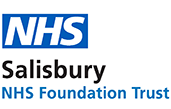

This statement is made pursuant to section 54(1) of the Modern Slavery Act 2015 and constitutes the Trust’s slavery and human trafficking statement for the financial year ending 31 March 2023. The statement sets out the steps that Salisbury NHS Foundation Trust (SFT) has taken, and is continuing to take, to make sure that modern slavery or human trafficking is not taking place within our business or supply chain, or in any part of our business during the year ending 31 March 2023 and the next financial year.
Modern slavery encompasses slavery, servitude, human trafficking and forced labour. SFT has a zero tolerance approach to any form of modern slavery. We are committed to acting ethically and with integrity and transparency in all business dealings, and to putting effective systems and controls in place to safeguard against any form of modern slavery taking place within the business or our supply chain.
Our Commitment
We are fully aware of the responsibilities we bear towards our service users, staff and local communities. We aim to follow good practice and take all reasonable steps to prevent slavery and human trafficking.
We aim to design and provide services, implement policies and make decisions that meet the diverse needs of our service users and carers, the population we serve and our workforce ensuring that none are placed at a disadvantage.
We are guided by a strict set of ethical values in all our business dealings and expect our suppliers to adhere to these same principles. We are committed to ensuring there is no modern slavery in any part of our business and, in so far as possible, require our suppliers to hold similar ethos.
We are committed to ensuring that all our staff are aware of the Modern Slavery Act 2015 and their safeguarding duty to protect and prevent any further harm and abuse when it is identified or suspected that an individual may be or is at risk of modern slavery and human trafficking.
We ensure modern slavery guidance is embedded into the Trust safeguarding policies. Staff are expected to report concerns about slavery and human trafficking, and management are expected to act upon them in accordance with our policies and procedures. We have provided our staff access to advice, support and resources on modern slavery and human trafficking – what it means, what are the types and who is affected, what to do if you suspect someone of being subjected to slavery.
We adhere to the National NHS Employment Checks/Standards this includes right to work in the UK, employees’ UK address and factual references.
Due Diligence
To identify and mitigate the risks of modern slavery and human trafficking in our business and in our supply chain, we:
Our approach to procurement and our supply chain includes:
Policies
Our policies and procedures are devised to reflect we take all reasonable steps to achieve these commitments as part of our due diligence. This includes, but is not limited to, the following policies:
Training
All staff have a personal responsibility for the successful prevention of slavery and human trafficking. Advice and training on modern slavery and human trafficking is available to staff through our safeguarding policies, procedures and training, and our safeguarding leads. Safeguarding training on identifying and supporting victims of modern slavery is mandatory for all staff via our online training system.
Modern Slavery awareness training is included for all staff as part of the Trusts Level 1 Adult Safeguarding Training.
Members of the Procurement teams who are Chartered Institute of Procurement and Supply (CIPS) qualified, or studying to become qualified, abide by the CIPS code of ethics and undertake an annually revised CIPS Ethics Test.
During 2023/24, the procurement team will undertake the CIPS Corporate Ethics Training with all relevant staff within the Procurement & Supply Chain Department taking the annual ethics test.
Confirmation
The Board of Directors has considered and approved this statement and will continue to support the requirements of the legislation.
June 2023
Our staff at Salisbury District Hospital have long been well regarded for the quality of care and treatment they provide for our patients and for their innovation, commitment and professionalism. This has been recognised in a wide range of achievements and it is reflected in our award of NHS Foundation Trust status. This is afforded to hospitals that provide the highest standards of care.
